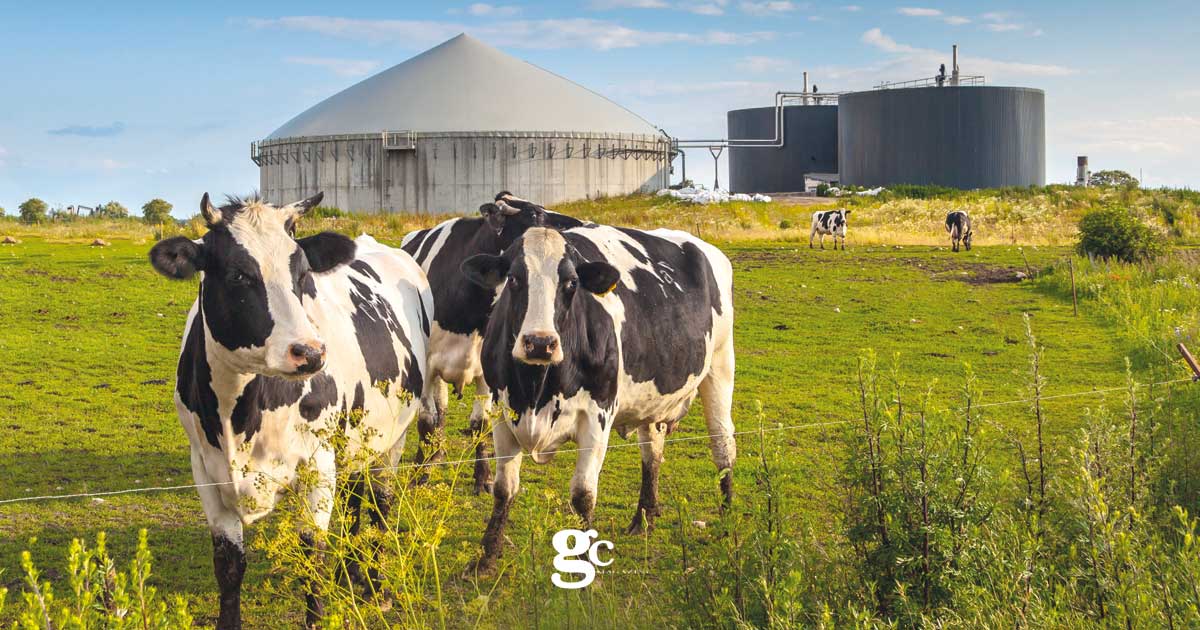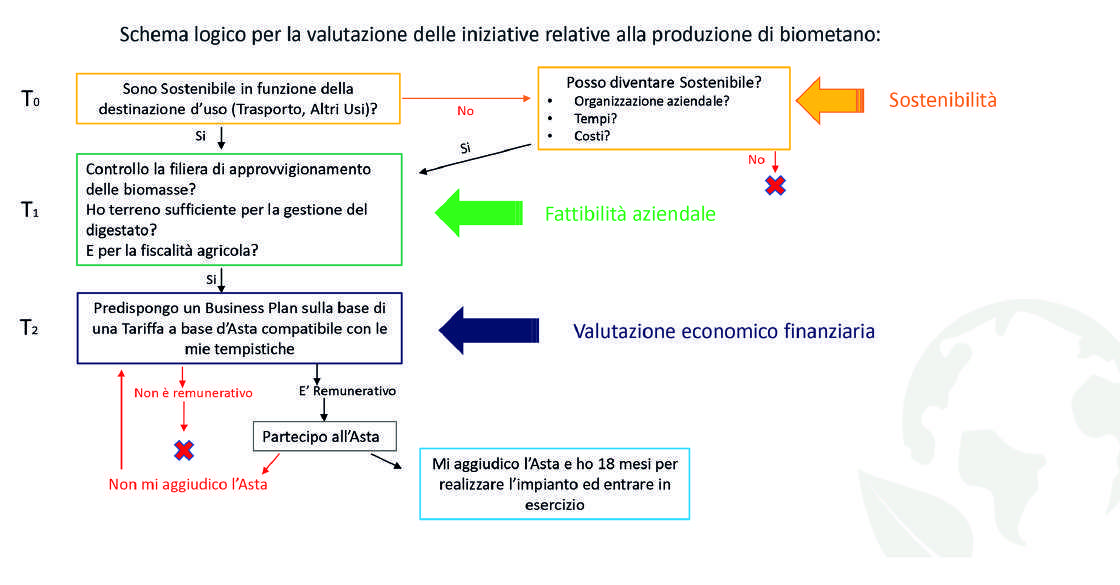6 February 2023

biogas | biometano | greencompanymagazine | igw | incentivibiometano | nonauscita | pnrr | tariffe
All the incentives allocated by the PNRR
With the ongoing energy crisis, the signing of the new Biomethane Decree on October 26, 2022, was highly anticipated. It involves 1.7 billion euros allocated to the production of biomethane from agricultural feedstocks and organic waste, which will promote the conversion and efficiency improvements of agricultural biogas power plants.
The new decree outlines several action lines: On one hand, it provides provisions for defining incentives for biomethane injected into the natural gas grid, produced by newly established plants or those undergoing conversion, starting after the decree’s effective date. On the other hand, it offers provisions for financing circular economy interventions by agricultural businesses, aimed at encouraging the adoption of agro-ecological practices during biogas production, promoting the replacement of obsolete and inefficient agricultural machinery with more efficient vehicles powered solely by biomethane, and supporting investments to improve the energy efficiency of biogas plants that are not undergoing conversion to biomethane production.
The Decree introduces:
- Biomethane for uses beyond transportation.
- “Uses in the transportation sector”: Biomethane used as fuel in the transportation sector.
- “Other uses”: Biomethane used in industrial, residential, tertiary, and agricultural sectors, excluding the thermoelectric generation sector.
- Annual quotas available and competitive procedures (Auctions).
- Reference tariffs divided by plant size, decreasing over the years from 2022 to 2025 (a 2% reduction). A percentage reduction in the reference tariff of no less than 1% is mandatory.
- Different tariff disbursement methods:
- All-inclusive tariff: The tariff equal to the reference tariff, reduced by the percentage discount offered and accepted in competitive procedures, including the economic value from the sale of natural gas as well as the value of guarantees of origin.
- Premium tariff: The tariff equal to the difference between the reference tariff, reduced by the percentage discount offered and accepted in competitive procedures, the average monthly price of natural gas, and the average monthly price of guarantees of origin; it can be either positive or negative.
- Reference tariff for agricultural plants set at 110 €/MWh for a production capacity greater than 100 Sm³/h and 115 €/MWh for a production capacity of 100 Sm³/h or less.
- Non-repayable capital contribution linked to the PNRR, defining a maximum eligible investment cost and a percentage of capital contribution (for agricultural companies: 40% on a maximum eligible amount ranging from 11,600 to 12,600 euros/Sm³, depending on size, for conversions and from 13,000 to 33,000 euros/Sm³ for new plants; different for plants powered by OFMSW, with a contribution for new plants of any capacity of 50,000 euros/Sm³).
- Sustainability: Access to competitive procedures is granted to plants that meet one of the two following sustainability requirements:
- The plant produces biomethane for the transportation sector from feedstocks usable for advanced biofuel production as per Annex VIII of Legislative Decree No. 199/2021 and achieves at least a 65% reduction in greenhouse gas emissions through biomass use.
- The plant produces biomethane for other uses and achieves at least an 80% reduction in greenhouse gas emissions through biomass use.
IN CONCLUSION:
- Biomethane production must be sustainable for both new initiatives and conversions, with additional requirements for advanced biomethane production.
- Incentive allocation occurs through auctions held every six months and referred to annual biomethane and energy quotas set by the decrees, with a decreasing base auction tariff.
- An All-inclusive Tariff and an alternative Premium Tariff are provided.
- Investments are included among those planned for the PNRR energy transition and benefit from a capital contribution within the limits and conditions outlined in the individual decrees and cannot be combined with other forms of support.
- The legislator (FER 2 approved by the State-Regions Conference in August 2022) prioritized biomethane production in the conversion of existing biogas plants by imposing a physical limit, the distance of the plant from the natural gas grid, beyond which electricity production can continue (1500 meters); if the biogas plant is less than 1500 meters from a suitable natural gas line, the only possible conversion is biomethane production (for transportation or other uses).
- For plants located more than 1500 meters away, electricity production can continue for 20 years at a tariff specified by ARERA.
Preliminary evaluation is required:
- On the sustainability of the supply plan and how it integrates or will integrate into the company’s reality.
- On the supply chain of the plant in terms of procurement contracts and sustainability (supply chain certification).
To access the auctions, it is necessary to:
- Have the authorization title (4/6 months, even for conversions, despite simplifications and non-substantial variations).
- Have an accepted connection estimate.
For further information and support to access incentives, contact ACEPER.
Taken from Green Company Magazine (Volume 9) – see all magazine issues


Press review
For information




